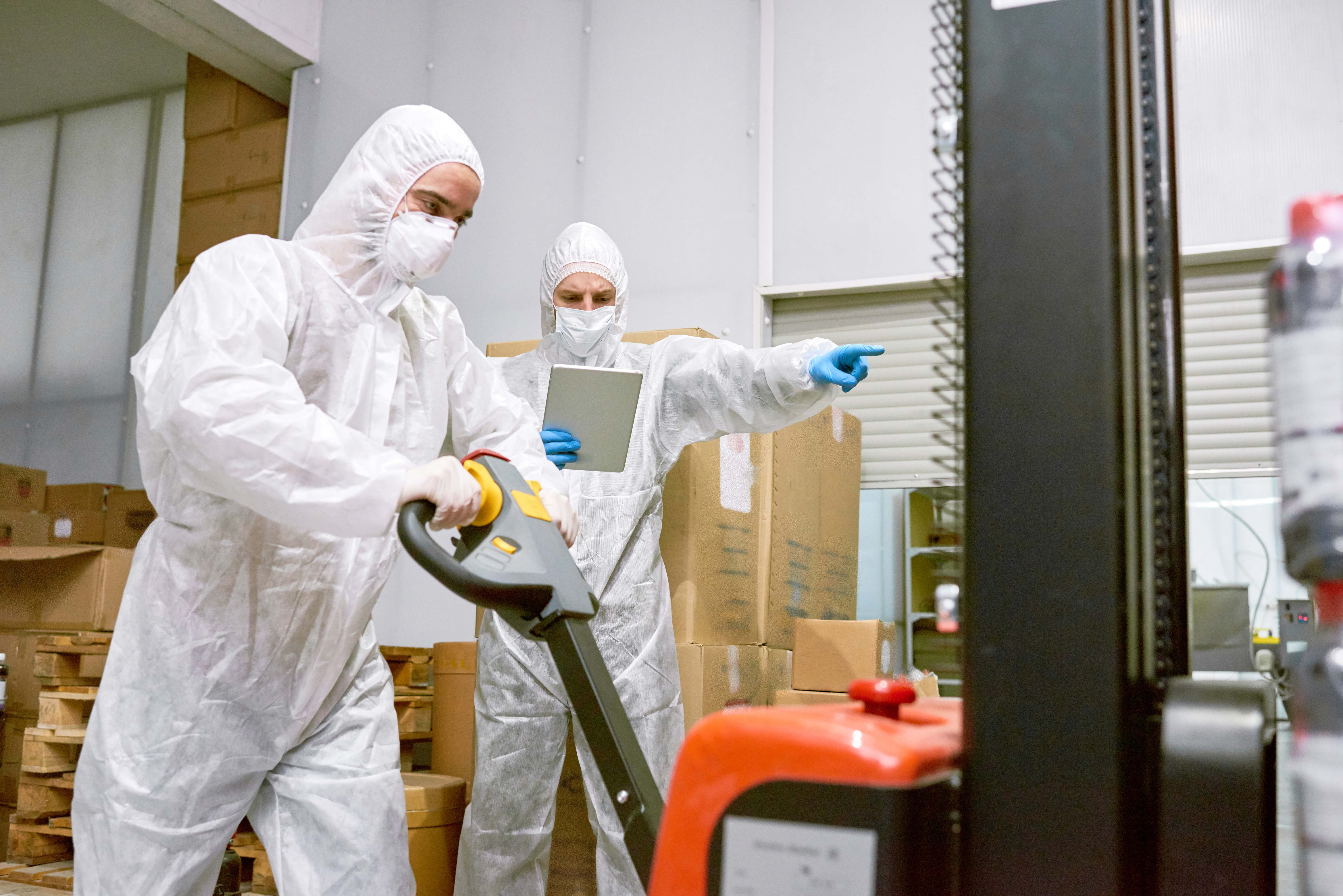Warehouse management in the pharmaceutical industry: 3 requirements in times of crisis

Reliability and efficiency are fundamental requirements for any type of warehouse, but they are of vital importance when moving in the pharmaceutical sector.
Pharmaceutical products (drugs, vaccines, plasma, etc.) must be stored under specific, controlled conditions and in compliance with national and international laws.
Traceability, maintenance of the cold chain and immediate availability are also among the main challenges of the sector which, especially in recent years, has to face and manage unexpected periods of crisis and epochal changes. From the increase in demand for certain types of products to the massive production, with consequent distribution, of anti-Covid vaccines, up to the trend, increasingly widespread among end-users, to order para-pharmacy products directly from eCommerce sites, to receive them comfortably at home.
What are the requirements that a pharmaceutical warehouse must comply, in times of crisis?
The following three, essentially:
- Parameterization
- Flexibility
- Timeliness
1. Parameterization: predicting the future to manage the unexpected
A pharmaceutical warehouse dedicated to the storage and distribution of drugs, is subject to strict tests and preliminary checks, in order to test their effectiveness and ensure their perfect functioning. In compliance with current regulations, dictated by the FDA (Food & Drug Administration) and GAMP (Good Automated Manufacturing Practice), the warehouse and management systems are subjected to scrupulous checks that test the processes in specific test environments.
This ensures that the system installed in the logistics center operates perfectly and without risk.
In this phase, the forecasting ability of the supplier plays a fundamental role. In fact, when installing the warehouse management system (WMS), the parameterizations, system configurations, variable by the manager, are set, and this allows you to change the behavior of the software if necessary.
Predicting, during the installation phase, possible future scenarios to be managed, facilitates the work and makes any crisis period less critical.
The parametric system can foresee, for example, sudden peaks in demand, new storage and picking logic, necessary to manage new products in the warehouse or in the event of an imbalance in volumes.
Finally, the ABC analysis system for goods repositioning allows the WMS to update the manager about the best product organization solutions, deriving from changes in orders or in customer needs.
When a change occurs, therefore, it will be sufficient to reshape the parameters to adapt the logistics chain to the new scenario.
It is important to keep in mind, however, that there are two types of parameters:
- Parameters that can be modified by the warehouse manager.
- More delicate and modifiable system parameters only by the supplier of the WMS, installed in the pharmaceutical warehouse.
2. Flexibility
Adapting the warehouse in the event of sudden changes in volumes or products (for example in the case of the production of the anti-Covid vaccine) requires good flexibility of the WMS system, of the relationship with the customer and of the warehouse operators.
If the changes have been foreseen by the parameterizations, the work will be easier, at least from the point of view of the operation of the logistics center, otherwise, it will be necessary to promptly contact the partner/supplier to be able to respond to new needs in a short time.
A flexible warehouse management system, able to adapt to needs and add new ad hoc modules, is the key to responding to the crisis with resilience.
3. Timeliness
In times of crisis, haste is inevitable but it’s also a sign of poor planning. Precisely for this reason, the right partner, with domain expertise, is certainly an important ally in dealing with the unexpected.
Having a clear picture of the scenario and the environment in which you are moving, foreseeing possible changes before they happen and knowing how to react promptly are characteristics that make the difference in "emergency" situations.
In times of crisis, the functioning of logistics, in particular of the pharmaceutical one, becomes indispensable and the malfunctioning of the supply chain can create many problems for companies and end-users. From storage to distribution, foreseeing the unpredictable is the key to reacting promptly, without interruptions. However, in the event that you are faced with the so-called "black swan", the difference will be the speed of intervention, the flexibility of the system and the possibility of being able to count on an experienced partner, able to intercept and manage the new needs.








